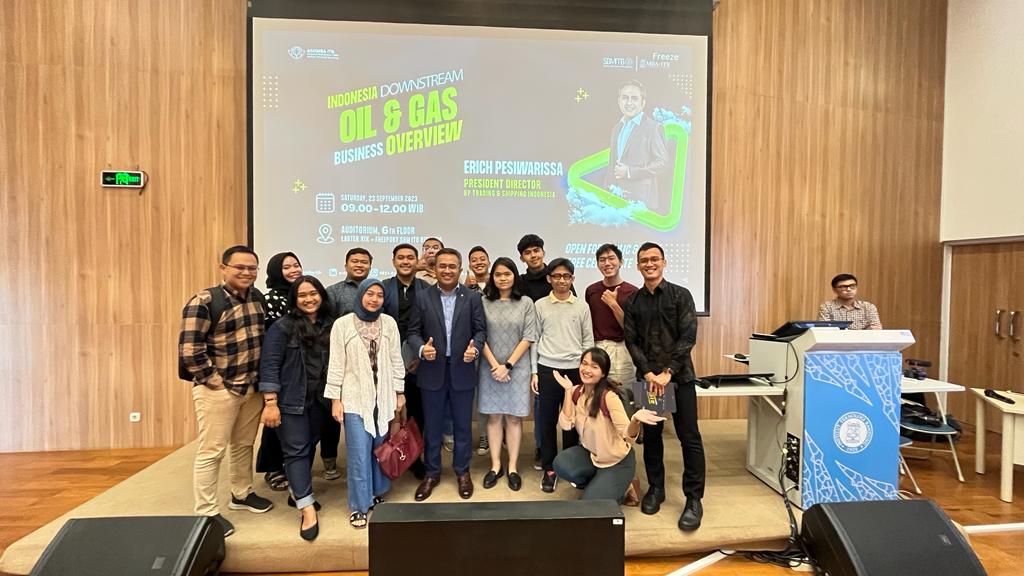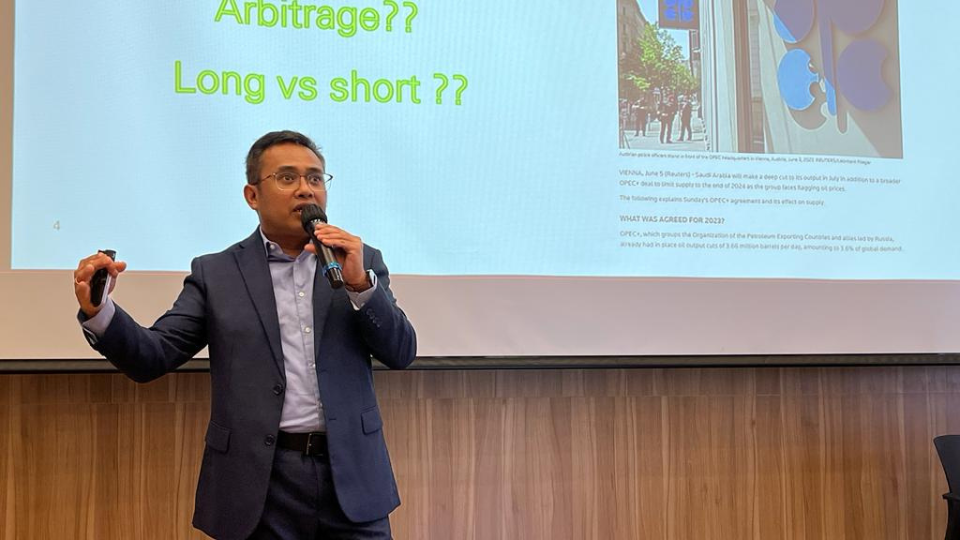Downstream oil and gas businesses are divided into four sectors, namely refining, trading, storage, and transportation. Erich Pesiwarissa, the President Director of BP Trading & Shipping Indonesia, introduced each sector during a seminar at the SBM ITB Freeport Building (23/9) organized by the MBA ITB Student Association (ASOMBA) 2023.
According to Erich, currently, there are 10 oil refineries in Indonesia, with a total capacity of 823,000 barrels per day. However, this number is insufficient because daily national fuel consumption reaches 1,230,000 barrels per day. Pertamina does not have sufficient capacity to meet all this demand.
In the early 2000s, Indonesia’s downstream oil and gas industry, such as the general fuel-filling business, was still relatively small and concentrated. Now, several prominent players are in Indonesia, meaning that Pertamina is no longer a single player.
“In this day and age, transparency is the norm,” said Erich when explaining the growth of private investment in the Indonesian oil and gas industry.
Privatization led to the need for transparency and was accompanied by sharper consumer supervision.
“The effect is to increase product quality. “For example, no more gas station manipulate the liter meter,” added Erich.
According to Erich, challenges persist in the downstream oil and gas industry, especially in renewable energy and energy storage. Consequently, incentives are of utmost importance to ensure the robust growth of Indonesia’s energy supply. These incentives are necessary due to the high-risk nature of the oil and gas sector.
Companies involved in oil storage and transportation must ensure the profitable, reliable, and sustainable supply of energy while navigating other risks, including credit and market risks. Given the substantial business risks involved, offering incentives such as competitive land rental rates, land availability, access to ports, and proximity to residential/industrial areas can serve as a strategy to attract increased investment in the oil and gas industry.
In Indonesia, BP Trading and Shipping, BP’s downstream business line connects the energy supply chain from oil rigs to markets. Besides crude oil, BP Trading and Shipping also trades chemicals, refined oil products, biofuels, natural gas, electricity, currencies, and environmental products. Product diversification allows BP Trading and Shipping to maintain operations even when demand for a product is low.
Rizky Amalia, the Commercial Advisor for BP Trading and Shipping, stated that BP is actively involved in efforts to achieve a 23% renewable energy mix by 2025. BP has carried out several renewable energy projects in Indonesia, such as hydrogen energy, offshore wind power plants, and power plants—solar panels. However, BP continues to compete with coal-fired power plants, capable of generating electricity at a lower cost.





